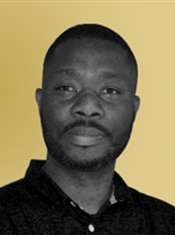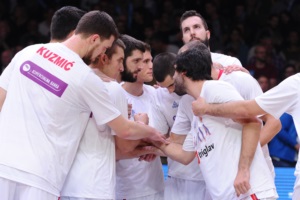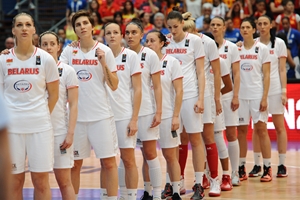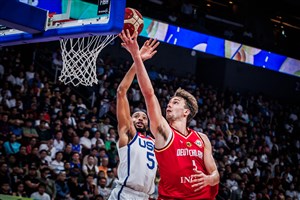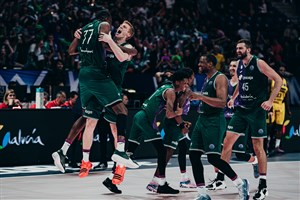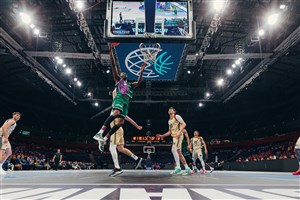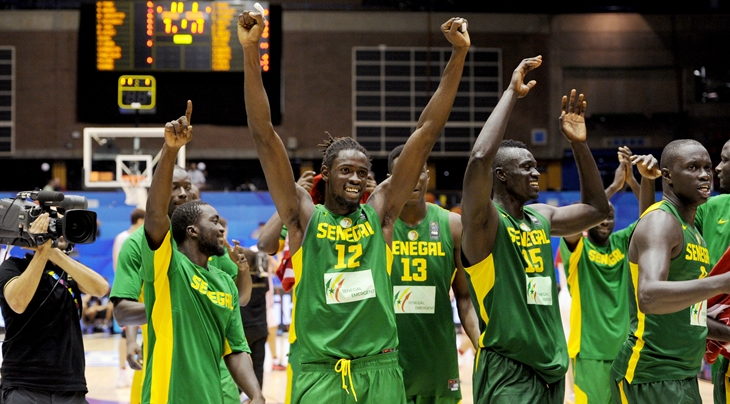
A win in the OQT Group Phase could give African teams hope
SHEFFIELD (Julio Chitunda’s African Message) - None of the three African teams - Angola, Senegal and Tunisia - involved in the 2016 FIBA Olympic Qualifying Tournaments (OQTs) are favourites, but they remain upbeat about their chances in the competition.
With the exception of Nigeria, who shocked the basketball world four years ago in Caracas, Venezuela, to grab one of the three tickets to reach the London Games, no other African team has ever advanced from the OQT.
In the last two OQTs editions, Cape Verde, Cameroon and Angola fell short of their olympics aspirations.
Unlike previous OQTs, the current circumstances give three nations, including the Philippines, Italy and Serbia the opportunity of hosting three different OQTs.
The Official Draw of the 2016 FIBA Men's Olympic Qualifying Tournament is completed. |via @FIBA pic.twitter.com/ErKEMEM8F2
— ABS-CBN News (@ABSCBNNews) January 26, 2016
And, the cities of Belgrade, Turin and Manila are seen as the last stop for frontrunners Serbia, Italy and the Philippines [some argue France are favourite in the Manila OQT] looking to reach Rio de Janeiro.
And the reason I feel the three hosts countries are favourites is simply because of the history of the competition. So far, Venezuela was the only OQT host nation who failed to reach the Olympics.
Angola, who finished runners-up at AfroBasket 2015, will play their OQT Group A campaign facing Puerto Rico and hosts Serbia in Belgrade. Tunisia will go against hosts Italy and Croatia in Group B in Turin, while Senegal will square off against Group A opponents Turkey and Canada in Manila, Philippines.
With that being said I think the chances of the African contenders advancing in the competition are slim, but one win in the Group Phase could transform the minnows into giants.
Over the course of the past week I discussed the OTQ implications with coaches, officials, fellow journalists, and none showed more confidence than the players themselves. Most players I spoke to, ask not to be ruled out before the competition, after all, none of us really knows how badly they look to realise an Olympic dream.
And, it’s the African teams’ condition as outsider that makes this year’s OQT a special occasion for Angola, Senegal and Tunisia.
Remember when Senegal upset Croatia at the 2014 FIBA Basketball World Cup, and Nigeria denied Greece a place in the last four of the OQT four years ago?
The answer to that question, I believe, was because opponents misread the African basketball potential, which continues to grow year after year.
And that’s the inspiration leading a number of African players who are likely to feature in this year’s OQTs.
Just take a look at what Carlos Morais (Angola), Makram Ben Romdhane (Tunisia) and Maleye Ndoye (Senegal) told me this past week.
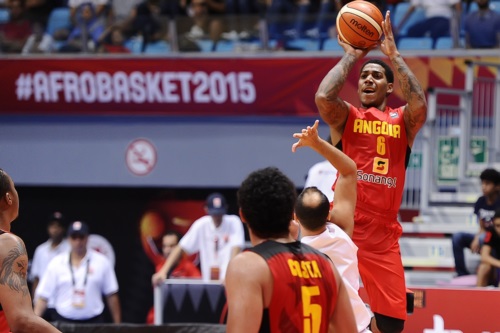
Carlos Morais (ANG)
Then I reached out Ayodele Bakare, the man who coached the Nigerian team a the 2012 OQT.
Bakare couldn’t be more realistic about his fellow Africans’ chances. “It will be extra-tough for any of the African countries to qualify from this 2016 OQT judging by the new format. But I still believe it can be done with determination, good planning and sound technical preparation.
[Angola] has the best chance of any African team for qualifying to the 2016 Olympics from their OQT bracket. The plan has to be to steal one of the games against Serbia and Puerto Rico, thus advancing to the next stages - Bakare
"Then it should not be too difficult to move on to the Finals where they will likely face one of their Group A opponents for the second time. If it's Serbia, all the pressure will be on Serbia and a good start for the Angolans in that game can result in an upset and an OQT qualification against all the odds.
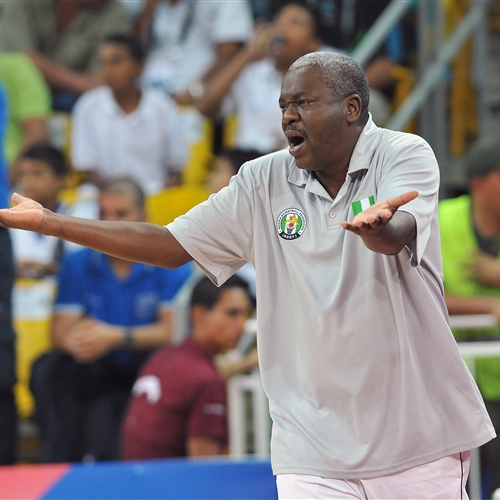
Ayo Bakare (NGR)
Bakare said of Senegal: “[They] Can probably come up with the best and most balanced roster of any of the african teams at OQT 2016, if they can put together all their pieces.
Of all the African teams, they [Senegal] are the best suited to competing at this level because of their ability to matchup with international opponents' physicality, size or skill-set at many positions - Bakare
"They usually are not forced to make the strategic compromises (and sometimes catastrophic adjustments) that some other african teams might need to make to their normal playing styles, to compete at this level. However, they will not win this OQT by playing their starters an average of 35 minutes per game though (which was a major reason they faltered at AfroBasket 2015).”
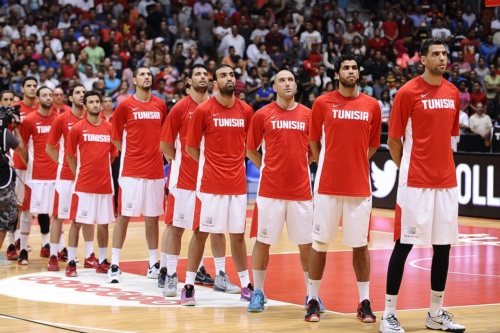
Tunisia (TUN)
As for Tunisia, Bakare added: “The Turin OQT group has all other teams except Italy ranked above Tunisia in the World Rankings. To make this even more daunting, a closer look at the roster of the Italian team suggests that just like Canada, the FIBA rankings may not be a true reflection of the talent available to them or the ability of the team. And Italy is the home team thus obliterating any injustice they might have suffered from the FIBA Rankings. So Tunisia has their work cut out for them in that group.”
Only the winner of each OQT will round out the nine already qualified teams for the 2016 Rio Olympics.
Julio Chitunda
FIBA
FIBA's columnists write on a wide range of topics relating to basketball that are of interest to them. The opinions they express are their own and in no way reflect those of FIBA.
FIBA takes no responsibility and gives no guarantees, warranties or representations, implied or otherwise, for the content or accuracy of the content and opinion expressed in the above article.
